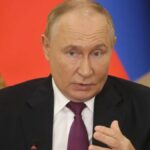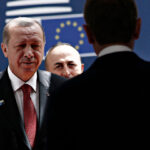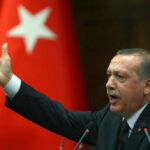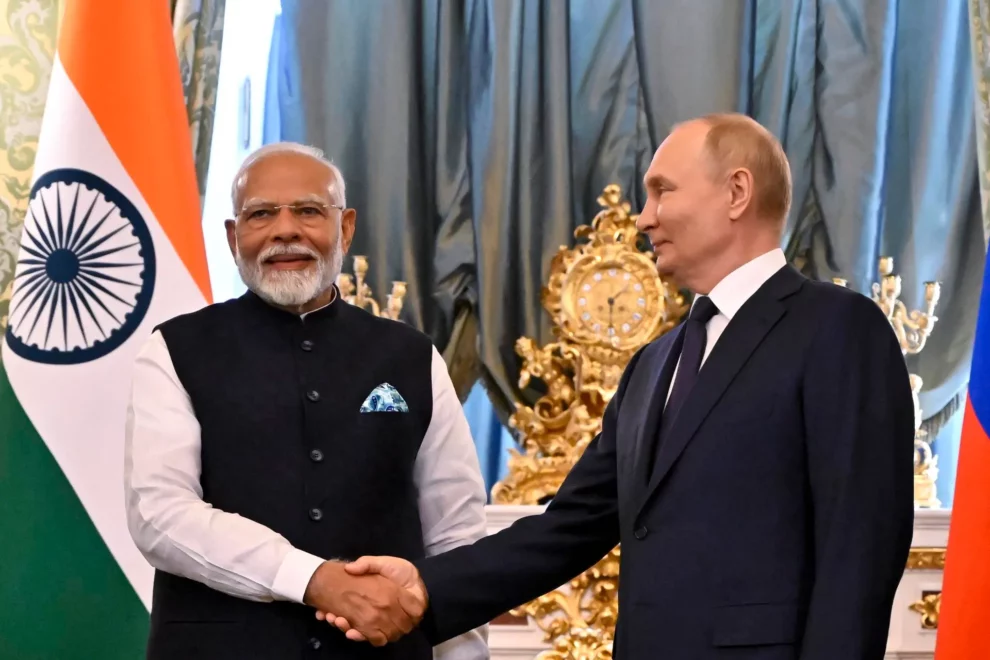Brussels seeks to fight sanctions avoidance by moving to enforce them on non-European businesses in countries outside EU jurisdiction.
The European Union is seeking to make it more difficult to circumvent its sanctions regime. The 14th package of its sanctions against Russia, in force since June 25, 2024, is designed to increase liability risks for companies that have avoided the previous rounds. By the end of the year, the measures will apply to EU-established companies, banks and investors that have direct or indirect holdings in subsidiaries, joint ventures or portfolios located in non-EU countries that maintain business relations with Russia, therefore undermining the sanctions regime.
Historically, the EU largely avoided introducing extraterritoriality into the design of its various international sanction schemes, including in its previous, less-than-airtight rounds of Russian sanctions. In fact, Brussels opposed implementing extraterritorial sanctions in the past, asserting that any of its restrictions would only be applicable where a direct link to the EU existed.
The EU has also protested when other jurisdictions, mainly the United States, imposed extraterritorial measures and secondary sanctions. Brussels even prohibited sanctions compliance by EU companies when faced with overseas measures in U.S. sanctions on Cuba, Iran and Libya.
Since 2023, the EU has increasingly targeted third countries to fight emerging schemes circumventing the Russia sanctions regime.
By contrast, the U.S. has long employed an extraterritorial capacity in its sanctions policies. The U.S. Treasury’s Office of Foreign Assets Control imposed “secondary sanctions,” targeting countries without the need for any nexus between a third country and the U.S. In September 2022, the Treasury signaled its intention to broaden the application of extraterritoriality significantly in the enforcement of its sanctions against Russia, and it has done so on numerous occasions since then.
Following the U.S. example
Lately, the EU has begun to follow the U.S. lead on the matter. Since 2023, it has increasingly targeted third countries to fight emerging schemes circumventing the Russia sanctions regime.
For example, Brussels introduced a provision in its eighth sanctions package to blacklist individuals of any nationality who facilitated the evasion of sanction penalties. Package 11 went further, setting up a series of new powers adding third-country entities to the new sanctions lists. The package also employed a last-resort measure for cases when circumvention continued by adding third countries to the sanctions list.
While the EU now regards targeting third-country operators as crucial to its anti-circumvention efforts, such measures have led to sanctioning persons for operations not considered illegal in their domestic jurisdictions – with no connection to the EU.
The “No Russia” clause will take effect on December 26, 2024, and will also apply when the transfer of intellectual property rights relates to goods identified as being of dual civilian-military use.
Initially deploying a light-touch approach to sanctions evasion, the EU gradually expanded its use of the extraterritoriality approach. It has been broadly incorporated into the 14th sanctions package.
Fully embracing the controversial measure
The EU’s latest sanctions package is focused on tackling sanction-dodging in third countries and beefing up enforcement. EU parent companies are now legally required to exercise their “best efforts” to ensure that their non-EU subsidiaries, which they own or control, refrain from engaging in transactions that result in an outcome the sanctions were designed to prevent.
Accordingly, EU operators transferring industrial know-how to produce battlefield goods to third-country commercial counterparts will have to include contractual provisions to ensure that such know-how will not be used for goods diverted to Russia.
This “No Russia” clause will take effect on December 26, 2024, and will also apply when the transfer of intellectual property rights relates to goods identified as being of dual civilian-military use or, simply, advanced technology. The European Commission will decide whether non-EU subsidiaries should also apply the “No Russia” clause.
Financial system sanctions
The new EU sanctions ban the use of the System for Transfer of Financial Messages (SPFS), an electronic platform developed by the Central Bank of Russia that serves as a Russian analog to SWIFT (the leading financial system that enables the transfer of funds between banks and financial institutions worldwide). As of the third quarter of 2023, around 300 Russian banks and 23 foreign banks from various countries, including Kazakhstan and Switzerland, were connected to the new platform, designed to enhance Russia’s financial sovereignty and reduce reliance on Western financial institutions.
EU entities operating outside of Russia are prohibited from connecting to that system, or any equivalent, effective from June 25, 2024. These entities are also barred from making transactions with listed entities using the SPFS outside of Russia.
Energy and trade sanctions
The EU’s 14th round of sanctions prohibits the reexportation of Russian liquefied natural gas (LNG) within EU territory. The ban extends to technical and financial services facilitating LNG transshipments to third countries. The aim is to diminish Russia’s revenues from gas sales.
The EU has expanded its military end-user list to include 61 new entities (33 in third countries and 28 in Russia) alleged to have been involved in the circumvention of trade restrictions or the procurement of sensitive items (used in various sectors, such as drones), and in general support of Russia’s military operations.
Global South responses to EU extraterritoriality
After the initial waves of sanctions failed to sufficiently crimp Russia’s economy, the U.S., the EU and some other Western nations responded by turning to extraterritorial measures, often banning third-country usage of their respective currencies in cross-border transactions.
The freezes have undermined the credibility of the euro and the dollar as havens, raising implications for non-Western governments managing their financial reserves.
This outcome arose because China, India, Brazil, South Africa and other Global South countries continued to trade with Russia. Unexpectedly, many increased their respective bilateral trade with Moscow and expanded sanctions evasion across a range of economic sectors, including finance, energy and trade in strategic manufactured and high-tech goods.
Most developing world countries consider Russia’s invasion of Ukraine unlawful but have argued that the conflict ought to be contained with compromise and ceasefires rather than unilateral sanctions and weapons supplies to Ukraine. India’s external affairs minister, Subrahmanyam Jaishankar, conveyed these countries’ sentiment when he advised in 2022 that “Europe has to grow out of the mindset that Europe’s problems are the world’s problems, but that the world’s problems are not Europe’s problems.”
The freezing of Russian assets has been hailed in the West as a proper and unified response to Russia’s war. However, it sent a troubling message to many in the rest of the world. Global South governments now wonder if holding their overseas assets in euros and U.S. dollars is so smart, as they themselves could face similar actions in the future. The freezes have undermined the credibility of the euro and the dollar as havens, raising implications for non-Western governments managing their financial reserves.
In a striking example of currency nervousness, Algeria introduced a clause in its 2023 agreement for gas sales to European partners: It reserved the right to change the transaction currency on a half-year basis. Similar nervousness can be detected across the Global South, where countries increasingly use their own currencies, the Chinese yuan or other alternative financial instruments in trade. That slowly but surely undermines the global relevance of the leading Western currencies.















